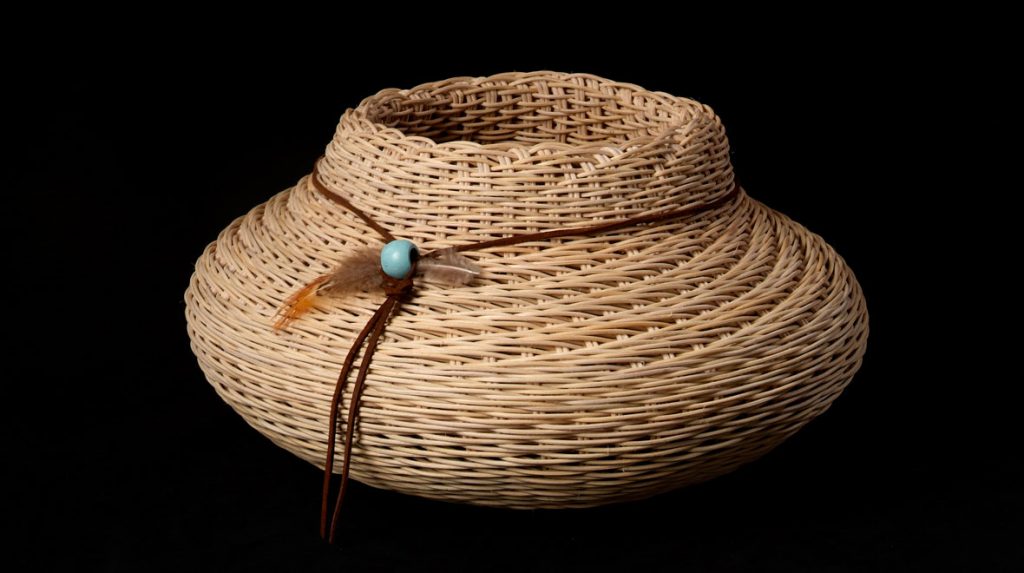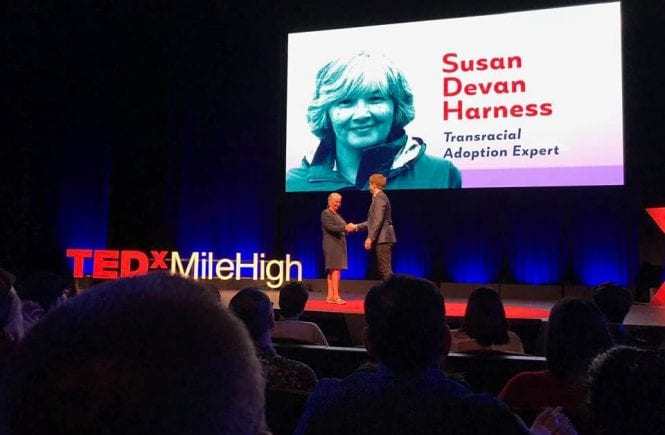The rant. Angry words splashed onto a virtual page. Nonsensical.
“Adoption is child trafficking! It should never happen under any circumstance!”
Where does this person live that they can make this statement with such venom, with such determined and righteous force?
It sounds like privilege.
***
My mom lay dying.
Is this your ‘real’ mom or your ‘adopted’ mom? I hate that question. I didn’t used to. For a long time, I viewed it as a need for clarification, a way of explaining how having two moms works. However, it’s complicated. I share genes with one woman, but nothing else; I share life with the other woman, but no genes. Descriptions for “real” abound in our language, in the scholarly papers, as we attempt to dichotomize our relationships: birth, biological, first, genetic, previous.
But how do you split apart the two very real aspects of who you are, nature and nurture. For me, then, the question becomes: is the other “real” or “adopted”?
***
I didn’t watch my (birth, biological, first, genetic, previous) mother die. I couldn’t deal with the fact that she’d disappeared from my knowledge and awareness once and then resurfaced only to lose her again ten years later. This time forever. So instead of sitting by the side of her bed on the sheet that covered her hospital gown, beneath which lay seventy-five pounds of skin stretched over bone, and taking her hand and waiting until we were both ok with letting go, I panicked. I gulped my sobs and walked outside where my tears melted the colors of a September landscape of golds and greens, running them together like rain on a chalked sidewalk. That’s the last time I saw her, this first mother; she died five months later in the room that I’d left behind.
I have so much guilt.
***
I did, however, watch my mom die as she lay in her bed, a small wizened figure that was a fraction of who she’d been, both weight-wise and as a force to be reckoned with. In the leaf green room of her nursing home, I held her hand, I wiped her brow, I swabbed out her mouth of the mucus that gathered and rehydrated with it a different swab. At one point, I placed both of her arms around me, wanting so badly to have one last hug. And I cried. Through those final hours of tears, I told her stories of the wonderful places she’d taken me, the beautiful experiences she’d given me, the strength she infused into me.
In between these stories, when she fell into the dreamworld that preceded that unknowable darkness, I studied the photos that surrounded her: me–her adopted daughter, her grandsons, her daughters-in-law and her now-deceased great grandson, dead at one year of age of unexplained liver failure, his face creased by large smiles and punctuated with twinkling eyes. The bulletin board below her wall-mounted television held the large photo calendar my husband had created, its monthly pages a collage of lived lives. The only photo of her in the room was the one where she, at thirteen, stood with two friends and her favorite sister, Barb, now long gone.
For months she’d asked me who the people were in the photos and I would tell her, explaining her relationship to each and every one of the people who had, at one time, been important to her. And although she would nod, her eyebrows, still black after all these years, never fully unfurled from her confusion. Eventually, she stopped asking. I imagine she wondered why there were so many photos of strangers in her room.
However, she rarely misplaced me in time. Every so often I was her sister, the favorite one, but the rest of the time I was her daughter, Susie. I was never her adopted daughter. One day, a few months ago, she said, “Sometimes it’s difficult for me to think that I didn’t give birth to you.”
There were those brows again, furled with confusion.
***
Her death, my grandson’s death, and my two cancer diagnoses have lowered my bullshit tolerance to zero in every aspect of my life, including adoption. I find I’ve grown tired of the pulsating, drummed messages of “stolen” as a euphemism for American Indian transracial adoption. My adrenaline pulses with the picture this construction and reconstruction paints: of vigilant men and women who will do anything, literally anything to keep their children within their families, within their communities. But I know different. Not everyone does that. And that’s the part of the conversation about adoption that is currently missing.
I am the first person to admit that it is easy to wax poetic if that first family is never found, if reunions never occur. How simple it is to idealize that first family while the people who raised us (or people just like them) become the antiheros, the reprobates, the sinners, the members of the ugly society who forced us away from our initial families, our implied “forever” families, and made us live, like second-class citizens in a foreign world.
It’s not that simple.
Colonizing governments and their assimilation policies left behind the emaciated bodies of colonized societies, where cancers like alcoholism, drug addiction, domestic violence and child neglect consumed what little was left. These were the cancers that raged through my biological mother, destroying her until she was no longer recognizable to me as anything but transportation for genetic information.
I was removed at eighteen months of age because of neglect. The social worker described that condition in her notes, the ones she made at the home visit, after someone called the department. Mosquito bites, bright red with infection and bleeding, covered my body. My diaper hadn’t been changed in days – severe blistering covered my buttocks; no guesses on when I’d last eaten. You see, my sister, aged three and brother, aged six months, and I had been left in the care of our six-year-old sister. Our mother was gone and had been for at least several days. It turns out this behavior was her norm; she would disappear for days, weeks, months at a time and no one knew where she was. She and her remaining children admitted this freely. Our grandmother was already raising several grandchildren and wasn’t able to take in three more. She was too old, she explained to the social worker. Family members were trying to raise their own large broods with limited space or resources for an additional three children. Besides, if there was room, they’d already taken in one of the two of our oldest sisters. Community members were under the same burden.
This is the reality that is never discussed.
Knowing this, was I stolen?
Mom lay beneath the sheets that had recently been changed, her eyes closed against the remaining hours. Peacefulness defined her wait.
“She likes hearing your voice,” the sandy blonde-haired nurse said; the one with the two-inch thick braid that ran down the center of her back; the one who’d just gotten off her night shift and was ready to head home. Like so many other employees of the nursing home, she’d stopped by just to say, “See you later.” Her gaze remained focused on Mom.
“How do you know?” I asked.
“Her breathing relaxes whenever she hears you talk.”
***
Mom took her job as a mother seriously, adopted or not, but she had strong opinions on what I should know with regard to my adoption.
On pride: “Your Indian grandmother was a proud woman. She’d stand straight and tall when she walked down the street in Hamilton and no one gave her anything but respect.” I don’t know how she would have known that, so I don’t know if it’s true. But, she did give me a framework by which to imagine being a proud Native woman in Montana, something unheard of.
On closed adoption records: “There is no one who should know more about you than you!”
When I first made contact with my birth family in 1993, I could feel the tension around me, filtering through all who knew of this reunion. In the midst of Western Civilization, mothering and its relationship with her child is an either/or concept. Mom didn’t see it that way. A few months ago, she’d told me she was glad I’d created relationships with my family. “I won’t have to worry about you. You’ll still have family after I’m gone. That’s important.”
At that time, I couldn’t fathom her leaving.
But she did. On June 25 at 4:20 in the afternoon.
***
In the last ten months, life has turned my world upside down and inside out. So what I have, I am thankful for. Grateful, even. Words that are shunned in so many conversations having to do with adoption. But with my bullshit tolerance at zero, I’ve grown tired of adoption rhetoric. I’ve lost compassion for people who jump on this train with their factless and uncompassionate anger and venom, forcing it to veer jarringly off course.
Adoption has always existed and it has happened on various guises of resource: this practice allowed people to take in children who no longer had anyone to care for them—death was, and is, a reality—through wars, genocide, societal violence. In more negative connotations, it was a way to pay outstanding debts and to gain cheap labor. The grey areas illustrate its existence as a way that allowed people to obtain and train in a trade and to rid households of too many mouths to feed. Sound familiar? Most of the rhetoric makes it sound as if these are new practices of a colonizing society. However, many have existed for hundreds, if not thousands, of years through the societies that have come and gone. In fact, several can be found in Hammurabi’s Code, written around 4000 BCE.
Adoption has become an ugly buzzword and that in itself has created or extended the either/or messages we love to wrap ourselves in, as if these are the only options that exist: either it is the best thing since sliced bread or it is the worst possible event that can happen to a child. Much of the rhetoric that is marched around as truth doesn’t require us, let alone allow us, to have a dialogue about safety or change. These concepts are drowned in the roiling river of righteousness that tumbles through the media.
For instance, dysfunction as an outcome of adoption implies that natural parents are somehow vaccinated against mistreating their children. However, a skim through the media, the scholarly psychology and sociology papers show otherwise. Natural born children are also victims of violence, physical, emotional and sexual, by their parents; they have been drowned, locked away, raised in chaotic filth, or their small bodies sold on the Internet. Therefore, dysfunction as a result of abuse is not an adoption-focused issue, so much as it is a child welfare issue.
Too many times I view and re-view the sensationalized stories of adopting parents mistreating their adopted children. This is not the norm, this is not a given, and to state otherwise is an injustice. Too many times the stories I read are filled with righteous fervor of how parents saved children and are to be recognized as heroes, or how adult adoptees criminalized their parents’ actions and view themselves as victims.
It’s so easy to sensationalize the arguments, it’s a given attention getter. But we need to be honest about what we know. Do we have the lives we wished for? Probably not, very few do. Do we know, without a shadow of a doubt, the lives we would have led if we hadn’t been, for whatever reason, placed? Again, very few do.
Therefore, let’s have a dialogue about this place, in the middle, where most of us exist, and how it looks with its beauty and its warts. Let’s talk about the children of war, of policy, of poverty so severe they have virtually no chance to change attitudes, ideas, behaviors, from the class they’ve been born into. Let’s have a dialogue that includes what works, as well as what doesn’t, instead of deviating into the either/or raging debate of the adoption rainbow. Because, in either/or, no pot of gold exists on either end for the adoptee.
Life changes have caused me to reconsider, to carefully re-evaluate what I’ve lost and what I’ve been given. The only answer I can give when asked if I would have had the same life I have now had I not been adopted is, “It’s complicated.”
In the current climate of adoption dialogue, I feel uncomfortable for the adoptive families, several of them my friends, who are made to feel like pariahs for their choices. I feel uncomfortable for the adult adoptee who, if they are not unsatisfied with their adoption, are made to feel that they just don’t understand the issues.
So, from my perspective, I seek two changes that are interwoven concepts: 1) a social acceptance of the idea that it is not immoral, unethical, or otherwise inappropriate to have two families that can have equal influence on who we are a human beings, and 2) an end to the rhetoric that doesn’t allow this acceptance a place to grow.
Had I not been placed into my family, I would never have had nor would I have been given equal access to have my voice added to the conversation. I am well aware of the privilege I’ve been given and I never forget that.





1 Comment
Sue,
Thus is so powerful and beautifully written. I can’t wait to read more of the things you’ve written. Thank you so much for sharing.